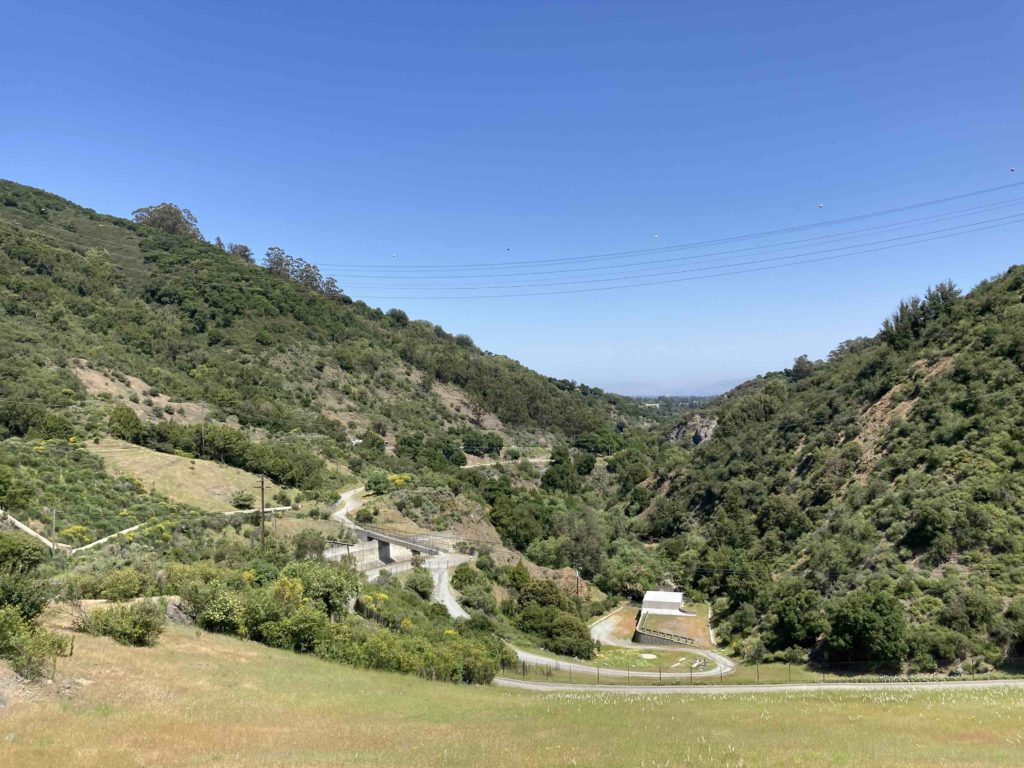Los Gatos commissioners are sounding the alarm that a new code of conduct, if approved as-is, would stifle freedom of speech and could lead to public meeting law violations.
While Town staff defended the pair of policies—one for Council members and one for commissioners—saying there was no intention of muzzling elected and appointed officials, they’re now planning a study session to rework the behavioral documents.
“The code of conduct as currently presented is ill-advised and creates serious threats of violating constitutional rights,” said Gordon Yamate, chair of the Diversity Equity and Inclusion Commission, speaking during public comment for the item, at a regularly scheduled Council meeting May 6. “The new code requires that, unless authorized by the mayor or Town Manager, all communications from individual commission members to the public—regarding issues within the jurisdiction of that commission—must be copied to the other members, the commission staff liaison and the Council. I think this might create some really important Brown Act issues.”
The new regulations are being introduced just two years after the Town had to rescind the censure of Planning Commissioner Kylie Clark—which her supporters considered a witch hunt against a young, pro-housing official following a minor misstep—after the ACLU stepped in citing free speech concerns.

The incident raised serious questions about the extent to which the mayor or vice mayor could put their finger on the scale of an investigation to force someone off Council that they disagree with.
Clark’s supporters contended Mary Badame, who was vice mayor at the time, played a role behind the scenes in elevating complaints about Clark to disciplinary action.
While Clark survived that intense public pressure, she ended up leaving her post early anyways, deciding to complete an educational stint in New York.
Jeffrey Suzuki—who supported Clark at the time, and is currently the chair of the Complete Streets and Transportation Commission—said he worries the draft code of conduct places too much power in the hands of whoever is serving as mayor that year.
“It basically gives unilateral authority to the mayor to make all decisions regarding punishments for disciplinary actions for commissioners. I believe that this is quite problematic in the long run,” he said. “What if the mayor likes certain commissioners over others, and they review a certain complaint?”
He suggested the Town Attorney could be the first point of contact, or disciplinary actions could be evaluated by additional Council members.
Emily Thomas, the chair of the Planning Commission, said she felt the draft rules were a bit unclear and said she didn’t think media communications should have been singled out in the way they were.
Yamate said he believes the new code of conduct would have a “chilling effect” on freedom of speech by clamping down on media interviews.
“The new code requires that commissioners refer all media inquiries to Town staff for an official response,” he said. “Many commissioners receive calls from the media on a variety of concerns, and we are mindful to carefully respond to them in our personal capacities, and not on behalf of the commission. To prohibit us from speaking to the press constitutes a clear and unequivocal prior restraint in violation of our First Amendment rights.”
A recent interview Yamate gave to San Jose Spotlight about racist language on property deeds here even landed the Town on the Kent County Levy Court of Delaware’s website.
(“This is how we became one of the most segregated communities in Northern California,” he’s quoted as saying.)
‘In this historical moment, this is not a time to be reducing people’s free speech’
—Ali Miano, Complete Streets and Transportation Commissioner
On April 28, he suggested to library and art museum officials that a project (inspired by a New Yorker article) built around transcribing the Constitution could be a good way to unify the community in the face of divisive rhetoric.
Ali Miano, member of the Complete Streets and Transportation Commission and the Los Gatos Anti-Racism Coalition, said she was shocked that the Town was trying to implement such a strict communications regime, particularly as Donald Trump’s second presidential administration is testing the Constitution.
“In this historical moment, this is not a time to be reducing people’s free speech. This is not a time to be putting, as Mr. Yamate said, a ‘chilling effect’ on people and their voices,” she said. “We’re doing this work because we care about this town, because we want to help better life here for everyone. We’re not in the business of making trouble for anybody. I don’t think we need to be quieted. I don’t think we have to have our mouths zipped.”
Carmen Lo, whose three-year term on the DEI Commission began Jan. 1, 2024, said the way the draft language is overly broad.
“The commission regulations, as written, do not respect this balance. And these regulations restrict the speech of commissioners, not just while we’re conducting business as ‘commissioner,’ but really in our everyday lives as individual citizens,” she commented during the meeting via Zoom, pointing to the provisions around commissioners needing to get their viewpoints reviewed and approved by Council in certain cases. “This essentially means that every time someone that serves on the library commission wants to speak about the library, would need to have that communication reviewed or distributed to the Council and Town staff. Any time a commissioner on the DEI commission wants to talk about anything related to the Town makeup, would have to have that reviewed by the Council or Town staff.”
The Town is worried that the federal government will cut millions of dollars in federal funding for things like wildfire prevention and the arts, and has signaled it will be preemptively cutting or freezing spending in various areas in the upcoming budget.
The Trump Administration is already withholding millions of dollars from organizations and threatening governments over diversity concerns and for not aligning with its agenda.
It was a comment to a State agency about the demographic makeup of the local group pushing back against zoning reform that landed Clark in hot water in the first place.
Meanwhile, this week, a Town staffer told a Los Gatan reporter its policy is “to request that all media questions be submitted in writing” and the Manager’s Office will respond “in writing as time and workload permit. This also allows the Manager to coordinate with the appropriate staff and/or Mayor as necessary.”
On Monday, Town Manager Chris Constantin clarified to the newspaper that the Town is open to allowing interviews, but prefers making statements via email to prevent the opportunity for journalists to get something wrong.

During Council’s code of conduct discussion, Town Attorney Gabrielle Whelan said the intention was not to restrict what commissioners can say in public when commenting on their own behalf, just when speaking for the Town body.
Vice Mayor Rob Moore, Clark’s significant other, said the way the policy is currently worded doesn’t draw enough of a distinction between those two things.
Councilmember Rob Rennie said he agrees the wording in the current draft would stifle speech.
Whelan suggested new language that could be incorporated to fix this problem.
Brennen VanderVeen, program counsel, public advocacy, with the Foundation for Individual Rights and Expression, told the Los Gatan the local government does have some latitude in controlling its own messaging.
“As far as the First Amendment goes…to the extent the proposed policy is only establishing procedures around how official government statements are made, it’s constitutionally permissible,” he said in an email. “So long as government employees retain the right to speak freely in their individual capacities, it isn’t really a free speech issue from a legal perspective.”
The Town is planning to hold a study session to rework the code of conduct policies for both commissioners and Council members.










